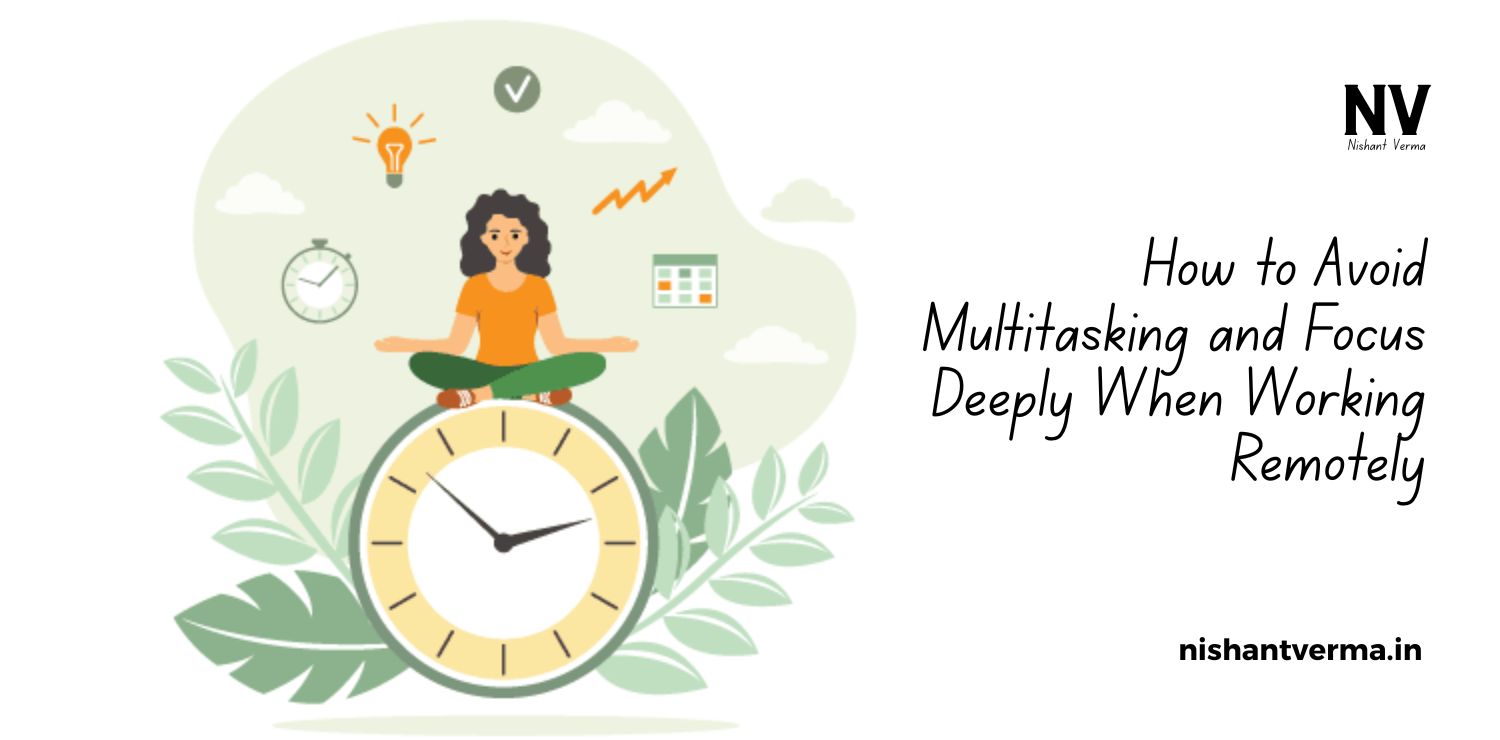Working from home gives a lot of autonomy to an individual, and when autonomy comes into play, the habit of constantly pushing work for “later” takes over, commonly known as Procrastination. It is a common human behavior where people tend to postpone their work. These small daily decisions of postponing the work become a habit in no time & it often leads to disastrous results.
One must identify early signs and try to fix this habit as soon as possible because a pile of work is nothing but a headache. It makes a person lethargic. It isn’t a habit merely related to professionals; you’ll see tons of people taking “quick, let’s scroll Insta” breaks in between cleaning or doing some other chore. But the best part about it is, this habit can be changed with discipline.
In this article, we’ll explore the ways to stop procrastinating while working from home. Here’s how,

Identify why and how you’re wasting time
How would you make a change if you don’t know the root cause of the problem? There can be multiple reasons why a person procrastinates, it could be because of fear of failure, lack of interest, distractions, overwhelm, or because of lack of clarity. Understanding your trigger point and working on it helps you avoid procrastination.
Break your work into tasks
Rather than taking up your whole work at one time, try breaking it into multiple achievable tasks. Once you complete a task, it acts as a motivation for the next one, it helps you eventually complete that whole work. Moreover, e.g., you need to prepare an assignment.
1. Understand the topic
2. Outline key sections (Introduction, Body, Conclusion)
3. Do the research work
4. Collect & write down content
5. Compile, review & give final touch
Use the famous rules & techniques
1. The 2-minute rule – If a task takes less than 2 minutes to do, do it now.
2. Pomodoro Technique – 25 mins of focussed work, followed by a 5 mins break
These little techniques help you stay in momentum and increase productivity.

Create a work environment for yourself
One doesn’t take work seriously until they are put into a work environment. It takes switching into work mode first for them to do a job, if not, they keep getting procrastinated. People working from home must have a dedicated office space for themselves. It must have a proper chair, desk, minimal clutter, and good lighting to put the brain into the work zone instantly, when it gives your office-like feel, you tend to work that way only.
Create a schedule to avoid procrastination
If you know yourself well and you know that you tend to procrastinate, try building a schedule that you can follow, keeping in mind that you give yourself ample time to relax. It isn’t important to keep every hour blocked for work, it drains all your energy and then often leads to burnout. Keep short slots for breaks in between.
Set daily goals
Have a to-do list prepared a day prior so that you know what needs to be done as soon as you sit in the chair. Set daily goals, and at least 3 big tasks, the completion of which makes you feel productive enough for the day. Try keeping them super realistic, if you don’t, you might end up even procrastinating those as they might overwhelm you. Also, set deadlines for their completion. Make these tasks visible. Put them onto a whiteboard or sticky notes, and have reminders set.
Eliminate distractions
Distractions are the breeding ground for procrastination. Especially while working, distraction is everywhere, buzzing phones, social media, and unfinished household chores. The first step is to stay aware. Once you know your distractions, try to eliminate or reduce them, turn off unimportant notifications, close unrelated tabs, and try staying focused.
Create a distraction-free zone for yourself, where you can indulge yourself in deep work. Keep your family informed to not disturb you at that time, unless it’s very important.

Final Thought
Ever since kids we’ve been told to stay proactive and how important time is. In this era of distractions, we must practice self-control, we should know well what are the distractions and what are their consequences. Break down tasks into simpler ones. Completing work on time will give you a sense of achievement, and over time, it will become a habit.
Start small, it’s not about working more, it’s about working smarter.




